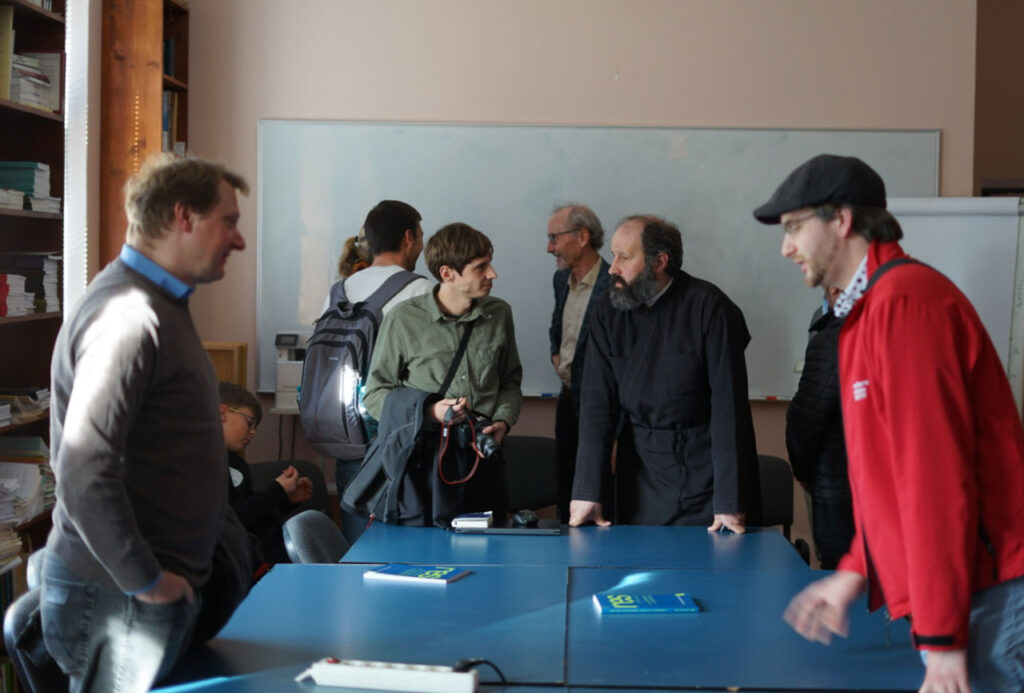
Taking advantage of our skills: what protestants are good at
The protestant churches have a strong exegetical tradition. Ministers are almost always required to learn biblical languages as part of their formation and they are trained to read and explain difficult texts. The skills should be implemented in the everyday life of the congregation as a possibility for the interested, not only for church members but open to everyone.
This could mean:
This could mean:
– an introduction to the grammar of a specific language structured as weekly appointment according to the needs of the participants. One of the most important aspect is to provide a good advertising of the course in advance taking advantage of the social media, local news papers, or local high schools. Offering this type of course provides two fundamental opportunities. First, it can be an excellent way to provide exegetical foundations for committed lay people in the community thus supporting involvement in preaching (where provided for by church ordinances) or catechesis for younger people.
Second, it allows a specific feature of the church to be shown that is often, especially in more peripheral settings, not present in other religious communities. Accrediting oneself with the local population as an “expert” in the Bible can play an important evangelizing and witnessing role, as well as promoting the idea of a church that is active in its own specific field, without giving the impression of pursuing political agendas dictated by others.
– Hold periodic monthly meetings on a specific ethical issue that may be felt as important by the community, inviting experts in the field who come from theological academic fields. In particular, it would be desirable to rebuild cohesion, where it does not already exist, between university chairs of systematic theology and biblical exegesis and local communities, fostering the idea that theological faculties are an active part of the church and play a unique and important role in preserving the thinking and skills necessary for effective witness to the gospel. Especially in contexts where there are not many cultural initiatives this would be a great way to showcase the specific skills of Protestant church traditions, sparking interest and even vocations.
Sharing Knowledge
This point is very similar to the previous one, but addresses the practical training of church members. In every community there are people who are more committed than others, based on each person’s free vocation. Since the pastor does not hold the monopoly of care in human relationships in a community, but rather a healthy church should also have internal support networks among its members, one of the proposals we would like to make concerns the possibility of presenting courses primarily aimed at the elders of the community, the church council or at any rate the people who show the most interest. Possibilities such as learning how to handle conflict in relationships, or counseling and listening basics for community members can bear extraordinary fruit in helping and supporting ordained ministers and developing interest and involvement in people.
This could also mean creating a “grassroots” diaconal initiative in a given context. You might be surprised how similar initiatives can build commitment and involvement in people, and especially help grow in specific skills.
Distributing a meal to needy people in a given neighborhood; or setting up food collections for large families; organizing an after-school program for children in the area who do not belong to the community, are all good, possible and realistic signs of increasing internal involvement of members. the biggest obstacle usually constituted by the prejudice that people are not willing to get involved. Instead, we are persuaded that asking what people think will help in that specific context, and proposing a concrete plan to the community can have excellent effects, involving people in all age groups.
Pastors probably have more practical knowledge to share than they are often aware of. Each should ask themselves how to value what can be done with joy and competence that will help in the precise context in which they are called to work.
Conclusions
All of these examples and advice are motivated by direct experience of their active operation in the context of the Waldensian church in Italy and in the Hungarian Reformed Church of Transylvania. Each one should carefully evaluate his or her own context in particular, paying attention also to the prior training of church members and above all listening first to the needs already present in the community, and in general in the place where it lives. We hope that by grace they can be useful tools in the service of spiritual and material edification of faith communities.
István Tasnádi – Vittorio Secco